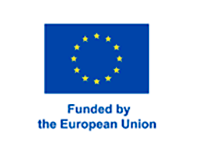@carlo42
Perfil
Registrado: hace 9 meses
Voices from the Field: Nursing Students and Educators Share Their Experiences with BSN Writing Services The debate surrounding specialized writing services for Bachelor of Science in best nursing writing services Nursing (BSN) students often happens in abstract terms, with theoretical discussions of academic integrity and educational philosophy dominating the conversation. Yet the lived experiences of those most directly affected—nursing students who utilize these services and educators who interact with the resulting work—offer essential perspectives that illuminate the complex realities behind the controversy. Through interviews with nursing students, faculty members, and writing service providers across multiple institutions, a nuanced picture emerges of how these services function within the nursing education ecosystem. "I Wouldn't Have My Nursing License Without Them" Maria Gonzalez, now a practicing emergency department nurse in Phoenix, speaks candidly about her BSN journey. "I was working night shifts as an LPN while taking daytime classes for my BSN. The clinical portions came naturally to me, but the academic writing nearly ended my career before it began," she explains. After failing a crucial writing assignment in her research course, Gonzalez turned to a specialized nursing writing service. "They didn't write my papers for me, but they showed me how to organize my clinical thinking into academic language. They understood nursing documentation and helped me translate my practical knowledge into the scholarly format my professors expected," Gonzalez says. After three months of guided practice, she began completing assignments independently with steadily improving grades. "I wouldn't have my nursing license without them," she admits. "Some might question that path, but my patients don't care about my writing process during my BSN program—they care about the clinical skills I bring to their bedside, which have always been strong." Gonzalez's experience reflects a common pattern among nursing students MSN Writing Services who seek writing assistance: strong clinical performers struggling with academic expression who view writing requirements as potential barriers to practicing in their chosen profession. "I Can Always Tell" Professor James Wilson, who has taught nursing research methods for fifteen years at a Midwestern university, offers a contrasting perspective. "I can always tell when a student has used a writing service," he claims. "There's a distinctive disconnect between what they can express verbally in class discussions and what appears in their written work." Wilson acknowledges the challenges nursing students face but worries about educational integrity. "The writing process itself develops critical thinking that's essential for nursing practice. When students outsource that process, they miss crucial developmental opportunities." However, Wilson draws distinctions between different types of assistance. "There's a spectrum of services out there. Some focus on teaching writing skills within a nursing context, which can be valuable. Others essentially produce papers with minimal student involvement, which undermines the entire educational purpose." His department recently revised their approach to writing assignments, implementing progressive skill-building exercises and providing exemplars of successful nursing papers. "We're trying to make the implicit expectations explicit," Wilson explains. "When students understand what good nursing scholarship looks like, they're less likely to seek outside help." "We Fill Educational Gaps" Dr. Elena Sharma transitioned from nursing faculty to founding a BSN writing nurs fpx 4000 assessment 2 support service five years ago. "We fill educational gaps that nursing programs simply don't have the resources to address," she contends. "Most nursing faculty are selected for their clinical expertise rather than their writing instruction abilities, and student-to-faculty ratios make individualized writing support nearly impossible." Sharma's service employs former nursing educators and requires students to actively participate in the writing process. "We use a collaborative model—students must submit their initial drafts and participate in guided revision. We won't work with students who just want finished papers." This approach reflects the philosophy of many established services that emphasize educational development over assignment completion. "We measure our success by whether students eventually need less help, not by whether they become repeat customers," Sharma explains. "Our goal is transfer of skills, not dependency." Her company keeps detailed records of each session's focus and student progress, which she believes distinguishes legitimate educational support from problematic services. "We're essentially providing the writing conferences that nursing faculty don't have time to conduct themselves." "I Learned More About Evidence-Based Practice From Them Than My Classes" Taylor Johnson, a recent BSN graduate now working in pediatric nursing, discovered writing services through classmates midway through his program. "I was specifically struggling with evidence-based practice papers—finding appropriate research, evaluating it, and connecting it to clinical questions," he recalls. Johnson describes working with a service that specialized in nursing nurs fpx 4005 assessment 2 research papers. "They didn't just help with formatting or grammar—they taught me how to evaluate research quality and applicability. I learned more about evidence-based practice methodology from them than from my actual classes, where we just skimmed the surface of research methods." This educational component changed Johnson's perspective on these services. "It wasn't about getting someone else to do my work—it was about getting a deeper explanation of concepts that moved too quickly in class. My writing improved, but more importantly, my understanding of nursing research fundamentally changed." Now in practice, Johnson applies these research evaluation skills regularly. "When our unit considers protocol changes, I can meaningfully engage with the evidence in ways many of my colleagues can't. That skill came directly from what I learned through the writing service." "We Need More Nuanced Policies" Dr. Michelle Washington serves as BSN program director at a large public university and has worked to develop what she calls "reality-based policies" regarding writing assistance. "The binary thinking that all outside help is cheating doesn't serve our educational mission," she argues. "We need more nuanced policies that distinguish between different types of support." Washington's program has implemented guidelines specifying what kinds of assistance students can seek, focusing on the difference between formative and summative assistance. "Students can get feedback on structure, clarity, and writing mechanics at any stage, but content development and argument formation must remain their own work." She believes this approach acknowledges the reality that many students need writing support while maintaining appropriate academic standards. "We've actually established relationships with several reputable services and receive regular reports nurs fpx 4015 assessment 2 about what writing issues our students commonly face, which helps us improve our instruction." This institutional adaptation represents an emerging trend—nursing programs developing more sophisticated approaches to outside writing assistance rather than simply prohibiting it. "The Clinical-Academic Divide Is the Real Issue" Dr. Thomas Chen, who researches nursing education pedagogy, sees the proliferation of writing services as a symptom of deeper issues in nursing education. "The real problem is the clinical-academic divide in how we structure nursing education," Chen argues. "We teach and evaluate clinical skills in hands-on, apprenticeship models, but suddenly switch to traditional academic approaches for scholarly thinking." This disconnect creates cognitive dissonance for many nursing students. "Students who excel in the clinical environment often struggle with academic writing not because they lack critical thinking, but because the expression format is foreign to their learning style," Chen explains. His research suggests that nursing programs should develop assessment methods that better align with how nurses actually communicate in professional practice. "If we evaluated scholarly thinking through case presentations, clinical documentation analysis, or evidence application exercises, many students who struggle with traditional academic writing would demonstrate their competence more authentically." Chen believes the demand for writing services would decrease significantly if nursing education bridged this pedagogical divide. "Students seek these services because we've created artificial barriers to demonstrating their knowledge. The solution isn't better policing of outside help—it's rethinking how we teach and assess scholarly thinking in nursing." Beyond Simple Answers These diverse perspectives reveal that the phenomenon of BSN writing services cannot be reduced to simple narratives about academic shortcuts or educational support. The experiences of students, educators, and service providers illustrate complex educational needs, institutional constraints, and professional preparation realities that defy one-dimensional ethical judgments. What emerges clearly is that nursing education continues evolving in response to healthcare's changing demands, and the writing support landscape will likely evolve alongside it. For nursing students navigating this challenging terrain, the most valuable insight may be focusing less on whether to seek assistance and more on finding support that genuinely develops the communication skills essential for their future nursing practice.
Foros
Debates iniciados: 0
Respuestas creadas: 0
Perfil del foro: Participante

